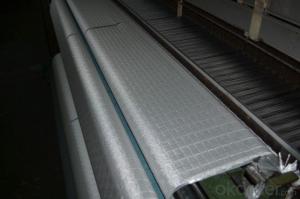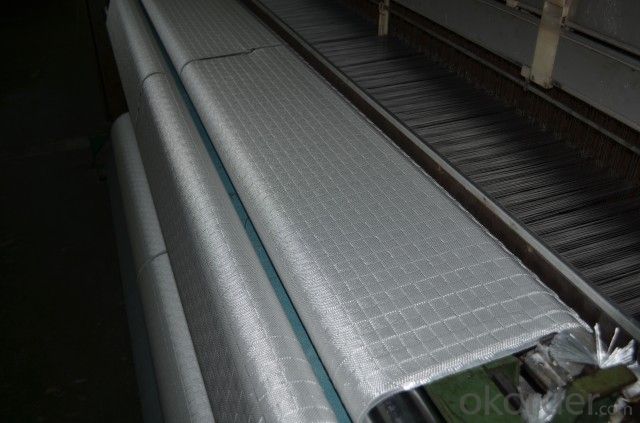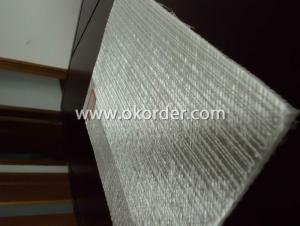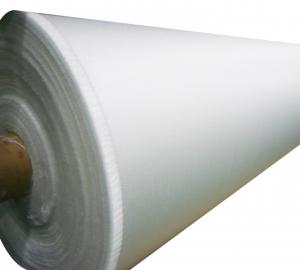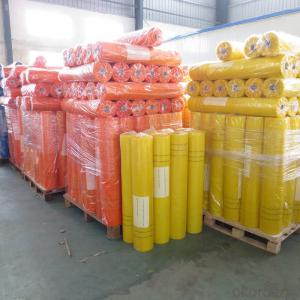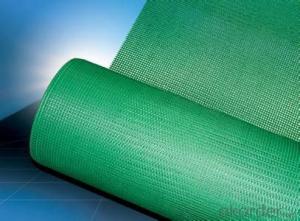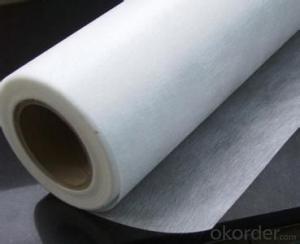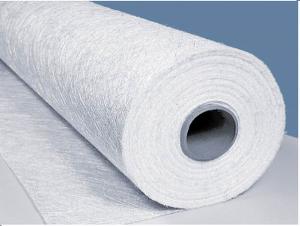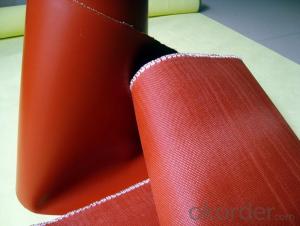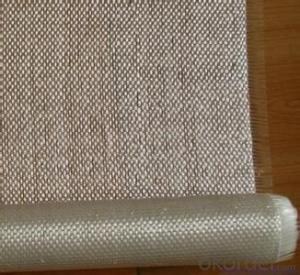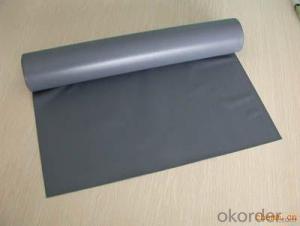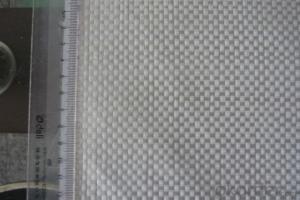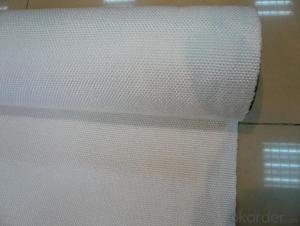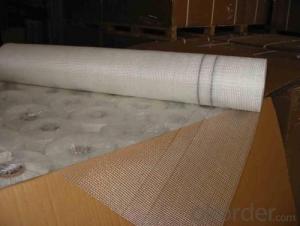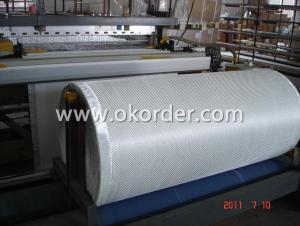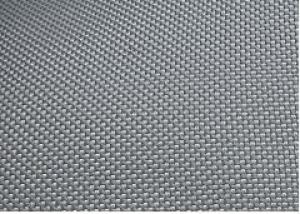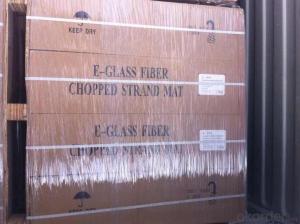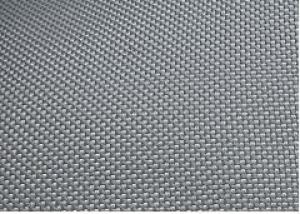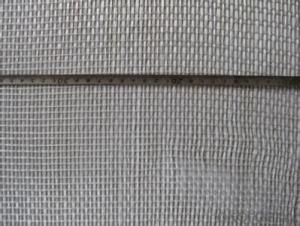High Quality Fiberglass Fabrics with Good Price
- Loading Port:
- Shanghai
- Payment Terms:
- TT OR LC
- Min Order Qty:
- 10 m.t.
- Supply Capability:
- 100 m.t./month
OKorder Service Pledge
OKorder Financial Service
You Might Also Like
FIBERGLASS YARN is made from different glass fiber filaments, which are then gathered and twisted into one individual yarn. Characteristics :consistent linear density, Application: Mainly used for weaving various reinforce, insulation, anticorrosion, heat insulation fabric and sleeves etc. We can supply different shapes and roll weight, such as milk bobbin, 3.5kg big and 1.0g /0/5kg small paper bobbin |
style | Weave pattern | Yarn description | Count(in) | Weight (g/m2) | Thickness (mm) | |
warp | fill | |||||
116 | plain | ECD450 1/2 | ECD450 1/2 | 60 x 60 | 108 | 0.095 |
2116 | plain | ECE225 1/0 | ECE225 1/0 | 60 x 58 | 105 | 0.09 |
2165 | plain | ECE225 1/0 | ECG150 1/0 | 60 x 52 | 123 | 0.10 |
7628 | plain | ECG75 1/0 | ECG75 1/0 | 44 x 31 | 200 | 0.18 |
3732 | twill | ECG37 1/0 | ECG37 1/0 | 48 x 32 | 430 | 0.43 |
3784 | satin | ECG37 1/2 | ECG37 1/2 | 44 x 35 | 870 | 0.80 |
| Remark: The above data are only the representative products, there are different threads, such as 1/3,2/2,2/3,1/5……etc. Also have C-Glass yarn. |
- Q: Can fiberglass fabrics be used for clothing or fashion purposes?
- Yes, fiberglass fabrics can be used for clothing or fashion purposes, although they are not commonly used for everyday wear. Fiberglass fabrics are known for their strength, durability, and resistance to heat and chemicals. These properties make them suitable for specific applications in the fashion industry. For example, fiberglass fabrics can be used to create protective clothing for industrial workers or firefighters. They can also be used as a component in specialized sportswear, such as in the construction of athletic equipment like helmets or shin guards. Additionally, fiberglass fabrics can be incorporated into high-fashion designs to create unique and avant-garde garments. However, it is important to note that direct contact with fiberglass fabrics can cause skin irritation, so proper precautions and lining materials should be used to ensure comfort and safety.
- Q: Can fiberglass fabric be painted?
- Yes, fiberglass fabric can be painted.
- Q: How do fiberglass fabrics perform in terms of stretch or elasticity?
- Fiberglass fabrics do not possess significant stretch or elasticity compared to other fabrics. Due to their composition of glass fibers, they tend to be rigid and stiff. This lack of stretch or elasticity makes fiberglass fabrics ideal for applications where dimensional stability and resistance to stretching are desired, such as in the construction industry for reinforcing materials or in the manufacturing of composites. However, if stretch or elasticity is a requirement for a specific application, other fabric options like spandex or elastane would be more suitable.
- Q: What are the standard widths of fiberglass fabric?
- The standard widths of fiberglass fabric typically range from 38 inches to 60 inches.
- Q: How does fiberglass fabric perform in vibration damping applications?
- Fiberglass fabric is known for its excellent performance in vibration damping applications. This is due to its unique properties that make it an ideal material for absorbing and dissipating vibrations. Firstly, fiberglass fabric has high tensile strength, which allows it to withstand the forces exerted during vibrations without tearing or breaking. This ensures that it can effectively dampen vibrations over a long period of time without wearing out or losing its damping capabilities. Additionally, fiberglass fabric has a high modulus of elasticity, meaning it can resist deformation under stress. This property is crucial in vibration damping applications as it enables the fabric to absorb and dissipate the energy generated by vibrations, effectively reducing their intensity and preventing them from spreading to other components or structures. Furthermore, fiberglass fabric is lightweight and flexible, allowing it to conform to various shapes and surfaces. This versatility is advantageous in vibration damping applications as it enables the fabric to be easily installed and applied to different structures or components, ensuring efficient vibration reduction. Moreover, fiberglass fabric has excellent thermal stability and resistance to chemicals, making it suitable for use in diverse environments. Whether subjected to high temperatures, moisture, or corrosive substances, fiberglass fabric maintains its damping capabilities, ensuring long-lasting and reliable performance. Overall, fiberglass fabric performs exceptionally well in vibration damping applications due to its high tensile strength, modulus of elasticity, lightweight and flexible nature, thermal stability, and chemical resistance. Its ability to absorb and dissipate vibrations effectively helps in reducing noise, preventing damage to structures or components, and improving overall performance and longevity.
- Q: Are fiberglass fabrics resistant to rot or decay?
- Yes, fiberglass fabrics are indeed resistant to rot or decay. This is because fiberglass is made from a combination of fine glass fibers and a polymer resin, which makes it highly resistant to moisture, chemicals, and environmental factors that can cause rot or decay in other materials. Additionally, the non-porous nature of fiberglass prevents the growth of mold, mildew, or bacteria that could lead to rotting or decay. Therefore, fiberglass fabrics are a durable and long-lasting option for various applications where resistance to rot or decay is desired, such as in outdoor furniture, boat hulls, or building materials.
- Q: What are the different fiberglass fabric coatings for weather resistance?
- Various fiberglass fabric coatings are available to ensure weather resistance. One frequently employed coating is polyurethane, renowned for its exceptional defense against moisture, UV rays, and temperature fluctuations. Silicone is another well-liked alternative, providing superior resistance to high temperatures, making it ideal for heat-sensitive applications. Acrylic coatings are also commonly used due to their ability to protect against UV rays, while remaining cost-effective compared to other options. Moreover, vinyl coatings can be applied to fiberglass fabric to bolster its weather resistance, given vinyl's reputation for durability and ability to withstand harsh weather conditions. Ultimately, the choice of fiberglass fabric coating for weather resistance hinges on the specific application and the desired level of protection.
- Q: How to deal with the high temperature fiberglass cloth, so that the trimming can not be scattered
- The machine will have to do something else by hand.
- Q: What color steel plate is good for dust-free workshop?
- Polyurethane sandwich panel consists of upper and lower intermediate color steel polyurethane foam composition, is one of the widely used building materials in the construction industry, has good thermal insulation, sound insulation, fire prevention materials added non combustion polyurethane. The polyurethane sandwich board has the advantages of non burning, moisture resistance, moth resistance, sound insulation, light weight, dry and wet, no deformation and heat preservation effect, and can be nailed, sawed and constructed, which is simple and convenient, and can be used repeatedly.
- Q: Is fiberglass fabric resistant to fire?
- Indeed, fire resistance is a notable characteristic of fiberglass fabric. The fabric is crafted by weaving fine glass fibers into a strong fabric. These glass fibers possess a remarkable melting point that renders them highly resistant to catching fire or burning. Moreover, fiberglass fabric is frequently treated with fire-resistant substances or coatings to bolster its fire resistance capabilities. As a result, it is an exceptional choice for various applications that necessitate fire resistance, including protective clothing, insulation materials, and fireproof curtains. Nevertheless, it is imperative to acknowledge that although fiberglass fabric exhibits fire resistance, it is not entirely fireproof and may still experience melting or degradation when exposed to extreme heat circumstances.
Send your message to us
High Quality Fiberglass Fabrics with Good Price
- Loading Port:
- Shanghai
- Payment Terms:
- TT OR LC
- Min Order Qty:
- 10 m.t.
- Supply Capability:
- 100 m.t./month
OKorder Service Pledge
OKorder Financial Service
Similar products
Hot products
Hot Searches
Related keywords
